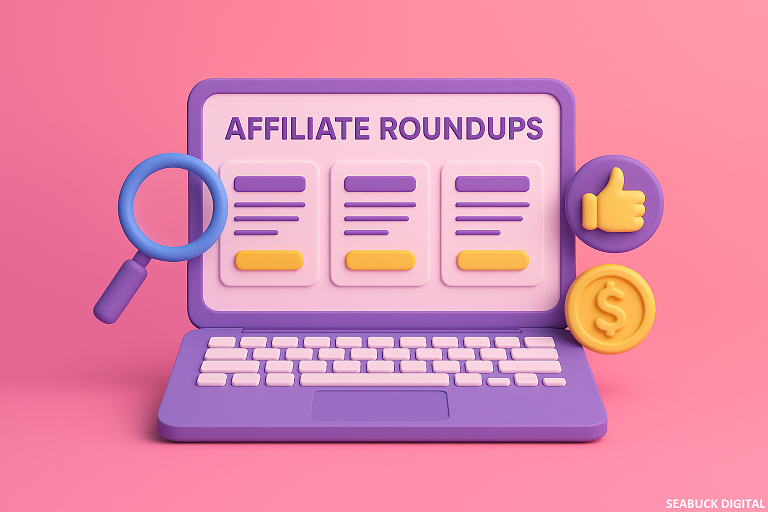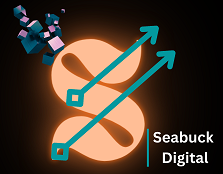
Introduction to Affiliate Roundups
What Are Affiliate Roundups?
Affiliate roundups are curated blog posts or content pages where you list and review several products or services within a specific niche. Think of it like a “Top 10” list or a “Best of” guide. They’re wildly popular in affiliate marketing because they’re easy to monetize and provide genuine value to readers looking for comparisons and recommendations.
Why Affiliate Roundups Are Powerful in SEO
These roundups attract clicks because they promise condensed insights. For SEO, they shine because they naturally include long-tail keywords, internal links, and structured formatting. Plus, they fulfill search intent by helping users decide—fast.
The Role of AI Search in Content Discovery
AI-driven search platforms like ChatGPT, Perplexity, and Google’s SGE don’t just look at keywords. They interpret meaning, context, and user satisfaction. So, your roundup must be written in a way that feels human, sounds helpful, and flows naturally—otherwise, it’s invisible in the AI-powered future.
Understanding AI Search Engines
How AI Search Is Changing the SEO Game
Gone are the days of keyword stuffing and backlinks alone making the magic happen. AI search understands language the way humans do. It looks at topical relevance, clarity, coherence, and helpfulness. In short, your content has to actually make sense and provide value.
The Shift from Keyword Stuffing to Semantic Relevance
Search engines now rely on Natural Language Processing (NLP). That means synonyms, context, and phrasing matter more than repetition. A roundup about “best podcast microphones” should also naturally mention “audio quality,” “USB connection,” or “noise cancellation.”
Importance of User Intent in AI Search
Understanding what users really want when they type something into a search bar is key. Are they comparing options? Looking for a budget choice? Wanting expert recommendations? Your roundup should address that intent head-on, not just rank for a phrase.
Building Affiliate Roundups That Actually Rank
Choosing the Right Niche for Your Roundup
Focus on niches with clear buyer intent and passionate audiences—tech, fitness, pet care, or digital tools, for example. If people are already shopping in that niche, a roundup gives them exactly what they need to make a decision.
Identifying High-Intent, Low-Competition Keywords
You don’t need 100,000 monthly searches. You need 100 targeted readers who are ready to buy. Use tools like Ahrefs, LowFruits, or Ubersuggest to find long-tail keywords like “best vegan protein powders for muscle gain.”
Tools for Keyword Research
- Ahrefs: Great for competitor analysis
- LowFruits: Finds underserved long-tail gems
- AnswerThePublic: Shows real questions people are asking
Curating Products with Genuine Value
Don’t just pick the highest-commission items. Choose products people actually love. Look for strong reviews, real-life success stories, and brands with solid reputations. AI search rewards trustworthiness.
Writing SEO-Friendly Roundup Content
Structuring Your Roundup for Easy Reading
People (and AI) love structure. Use headers, bullet points, comparison tables, and summaries. Make it scannable. Think of your roundup like a magazine layout—clean, informative, and inviting.
Using H2s and H3s for Each Product or Section
Example:
H3: 1. Blue Yeti USB Mic – Best for Beginners
Include a short intro, standout features, pros and cons, and your honest take.
Writing Honest and Helpful Mini-Reviews
No fluff. People want real insights. Mention quirks or downsides—it builds trust. Share how a product worked for you or someone you know. This resonates way more than generic praise.
Including Pros and Cons for Balance
- Pros help people feel confident in a choice.
- Cons help people feel informed, not sold to.
Using Personal Experience or Social Proof
If you’ve used the product, say so. Include testimonials, screenshots, or quotes from happy users. These are gold for AI and humans alike.
Optimizing for AI Search and ChatGPT Rankings
Writing with Semantic Richness and Natural Language
Use varied language that mirrors how real people speak and search. Sprinkle in phrases like “top-rated,” “worth the money,” or “great for beginners.” It makes your content more relatable and discoverable.
Incorporating NLP-Friendly Formatting
Use numbered lists, bullet points, comparison tables, and bold important terms. This helps AI quickly identify and summarize your content in answers.
Using FAQ and Schema Markup
Add an FAQ section at the end. Use schema (structured data) to help search engines understand what each section is about. Tools like RankMath or Yoast can handle this easily.
Link Building for Roundup Success
Guest Posts and Backlink Outreach
Pitch your roundup to blogs in your niche. Offer to write a guest post or trade links. Backlinks still matter, especially when paired with high-quality, relevant content.
Leveraging Influencer Collaboration
Ask influencers to contribute a quote or insight to your roundup. They’ll likely share it once it’s live—free exposure and authority in one shot.
Promoting on Forums and Social Media
Share in Reddit communities, Facebook groups, and Twitter threads where your audience hangs out. Be helpful, not spammy. Link only when relevant.
Mistakes to Avoid with Affiliate Roundups
Over-Optimization and Keyword Cannibalization
Don’t cram the same keyword into every sentence. Also, avoid creating multiple roundups that compete with each other. Focus your firepower on one powerful piece per topic.
Using Duplicate or Generic Content
AI search engines know when you’re copying. Always rewrite in your voice. Add opinions, flair, and insights to stand out.
Ignoring Mobile and Page Speed Optimization
Slow, clunky pages lose rankings fast. Use responsive design, compress images, and test your speed on tools like GTmetrix or PageSpeed Insights.
Monitoring and Updating Your Roundup
Tracking Performance in AI Search Tools
Use Google Search Console, Bing Webmaster Tools, and AI-focused tools like Surfer or Frase to monitor performance and tweak where needed.
Refreshing Outdated Links and Info
Affiliate links expire. Prices change. Keep your roundup updated every 3-6 months to stay accurate and trustworthy.
Scaling the Roundup with New Entries
As your niche evolves, add new products or remove ones that no longer cut it. A living roundup stays relevant—and ranks longer.
Conclusion
Affiliate roundups can still dominate search—especially with AI taking over. But you have to evolve with the times. Forget keyword-stuffing and shallow content. Focus on being helpful, honest, and human. Use structure, NLP-friendly language, and evergreen optimization. If you play it smart, your roundup can become a go-to resource that ranks not just in Google, but in the future of AI search too.
FAQs
What makes an affiliate roundup rank well in AI search?
Semantic richness, helpful content, structured formatting, and natural language are key. AI rewards context, not just keywords.
How often should I update my affiliate roundup?
Ideally every 3–6 months. Update affiliate links, product details, and any outdated recommendations.
Can I use AI tools to write affiliate roundups?
Yes, but always edit for voice, tone, and originality. AI can help structure ideas, but human polish makes it rank and convert.
What’s the ideal number of products in a roundup?
7 to 10 is a sweet spot. Enough to offer variety without overwhelming the reader.
How do I find high-converting affiliate products?
Check affiliate networks like ShareASale, Impact, or Amazon. Look for products with strong reviews, low refunds, and decent commissions.
Read More:
Keyword Clustering for Affiliate SEO
Best AI Tools for Affiliate SEO

